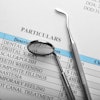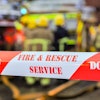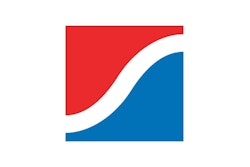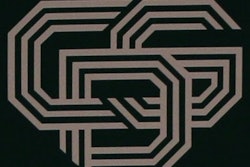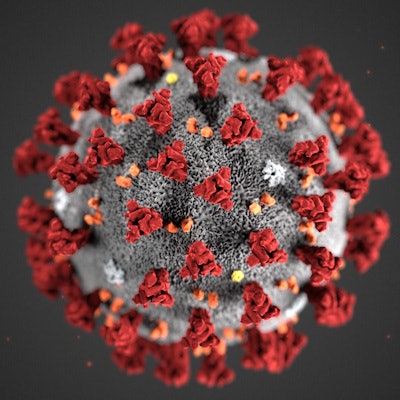
A lot of information is circulating about coronavirus disease 2019 (COVID-19) and the impact it is having in the U.S. and around the world. Some of it is correct -- and some of it is simply wrong.
It is hard to know what effects the coronavirus will continue to have over the days and weeks ahead, but dental professionals and all people need to know certain information to stay as safe as possible. There are also organizations and resources you can consult to get the correct information.
One of those resources is the Organization for Safety, Asepsis and Prevention (OSAP), which is a dental association of clinicians, educators, researchers, and industry representatives who advocate for safe and infection-free delivery of oral healthcare. The following is a statement that OSAP has issued regarding best practices regarding the coronavirus:
The Centers for Disease Control and Prevention (CDC) has noted that: Surgical facemasks are cleared by the US Food and Drug Administration (FDA) as medical devices and should be worn once and then discarded. CDC's recommendation for single-use disposable masks for dental healthcare personnel (DHCP) is on page 41 of the Guidelines for Infection Control in Dental Health-Care Settings - 2003:
- Wear a surgical mask and eye protection with solid side shields or a face shield to protect mucous membranes of the eyes, nose, and mouth during procedures likely to generate splashing or spattering of blood or other body fluids.
- Change masks between patients or during patient treatment if the mask becomes wet.
A surgical mask protects against microorganisms generated by the wearer and also protects DHCP from large-particle droplet spatter that might contain bloodborne pathogens or other infectious microorganisms. The mask's outer surface can become contaminated with infectious droplets from spray of oral fluids or from touching the mask with contaminated fingers. When a mask becomes wet from exhaled moist air, the resistance to airflow through the mask increases, causing more airflow to pass around edges of the mask.
CDC recognizes that healthcare facilities may experience temporary shortages even if they do not care for patients with COVID-19. If your facility is concerned about a potential or imminent shortage of PPE [personal protective equipment], CDC recommends you alert your state/local health department and local healthcare coalition, as they are best positioned to help facilities troubleshoot through temporary shortages. DHCP concerned about healthcare supply for PPE should monitor Healthcare Supply of Personal Protective Equipment for updated guidance, and be familiar with the Interim Infection Prevention and Control Recommendations.
If a patient presents with symptoms of a respiratory infection, DHCP may consider postponing nonemergency or elective dental procedures until a patient is no longer contagious with diseases that may be transmitted through airborne, droplet, or contact transmission (e.g., sneezing, coughing, and contact with skin). If urgent dental treatment is necessary, DHCP and medical providers should work together to determine the appropriate precautions on a case-by-case basis to avoid the potential spread of diseases among patients, visitors, and staff. Because dental settings are not typically designed to carry out all of the transmission-based precautions that are recommended for hospital and other ambulatory care settings, DHCP and medical providers will need to determine whether the facility is an appropriate setting for the necessary services for a potentially infectious patient.
Again, let's emphasize a key part of this statement: Masks are to be used only once and then discarded.
Shortage of masks for dental professionals?
Speaking of masks, there has been a lot of talk about a shortage of these infection-control equipment and other related items, such as gloves and masks. We asked the two largest dealers in North America for information on this topic. Below are their statements on the availability of masks and other related items:
- Patterson Dental: "Patterson Dental is working closely with our customers and carefully monitoring the coronavirus situation. Our priority is to have infection-control supplies for our customers to continue to provide care to their patients and protect themselves. We are monitoring sales activity, product availability and continue to collaborate with our suppliers in all infection control categories as the situation changes daily."
- Henry Schein: "Due to the coronavirus outbreak, we are experiencing higher than normal demand globally for infection control products such as masks, goggles, and face shields, among other items. We are working with our manufacturing and supply chain partners, as well as global health organizations, including the Pandemic Supply Chain Network, the World Health Organization, the Chinese Ministry of Health, and the Centers for Disease Control and Prevention, to address shortages as they occur. Given this situation and acute market needs, we anticipate disruptions to orders for certain infection products in various markets. Please contact your local Henry Schein consultant for specific inventory inquiries."
Other resources
The ADA has put together information for dental professionals about dealing with the coronavirus that you can find on its website.
Likewise, the U.S. Centers for Disease Control and Prevention (CDC) has a page devoted to coronavirus.
Finally, DrBicupsid.com published an article in mid-February on what dental professionals should do to protect themselves from coronavirus.
Remember, wash your hands and, when you have questions, reach out to the experts for their advice rather than just relying on social media.

